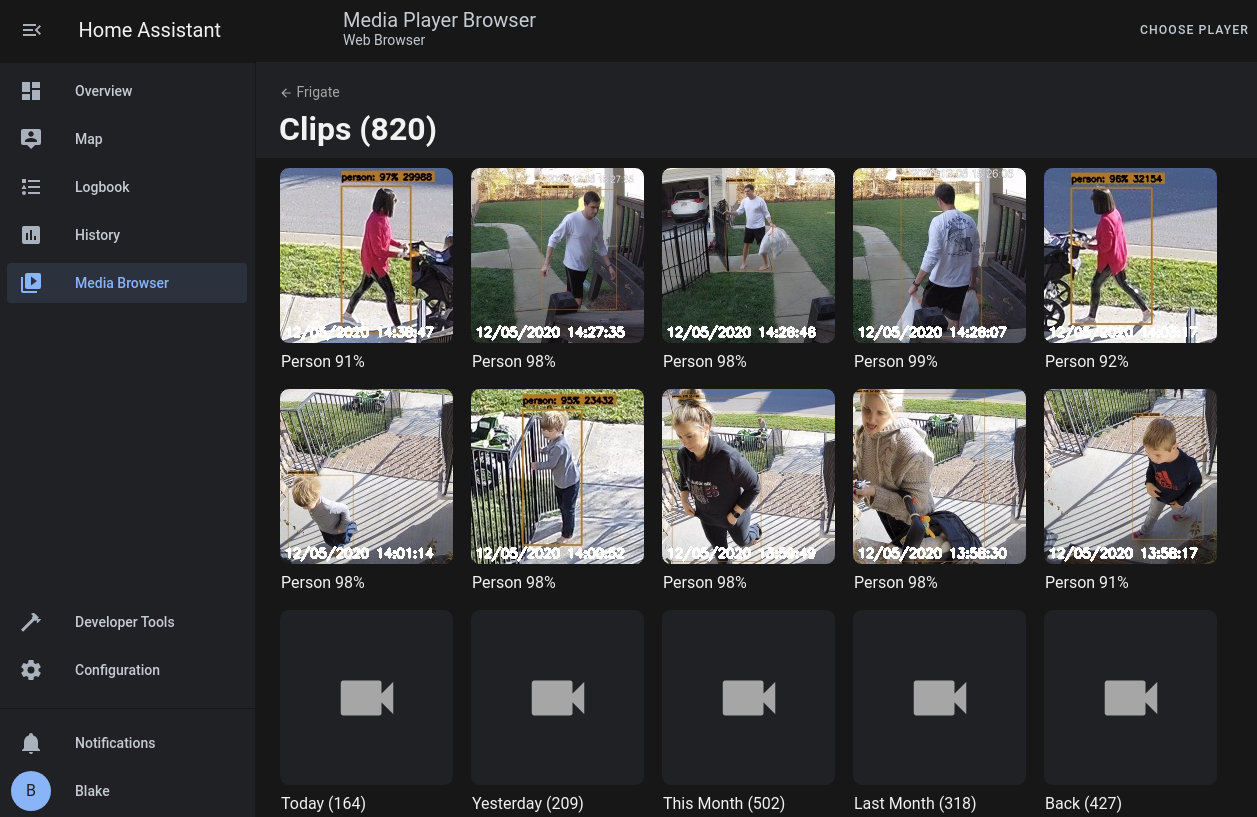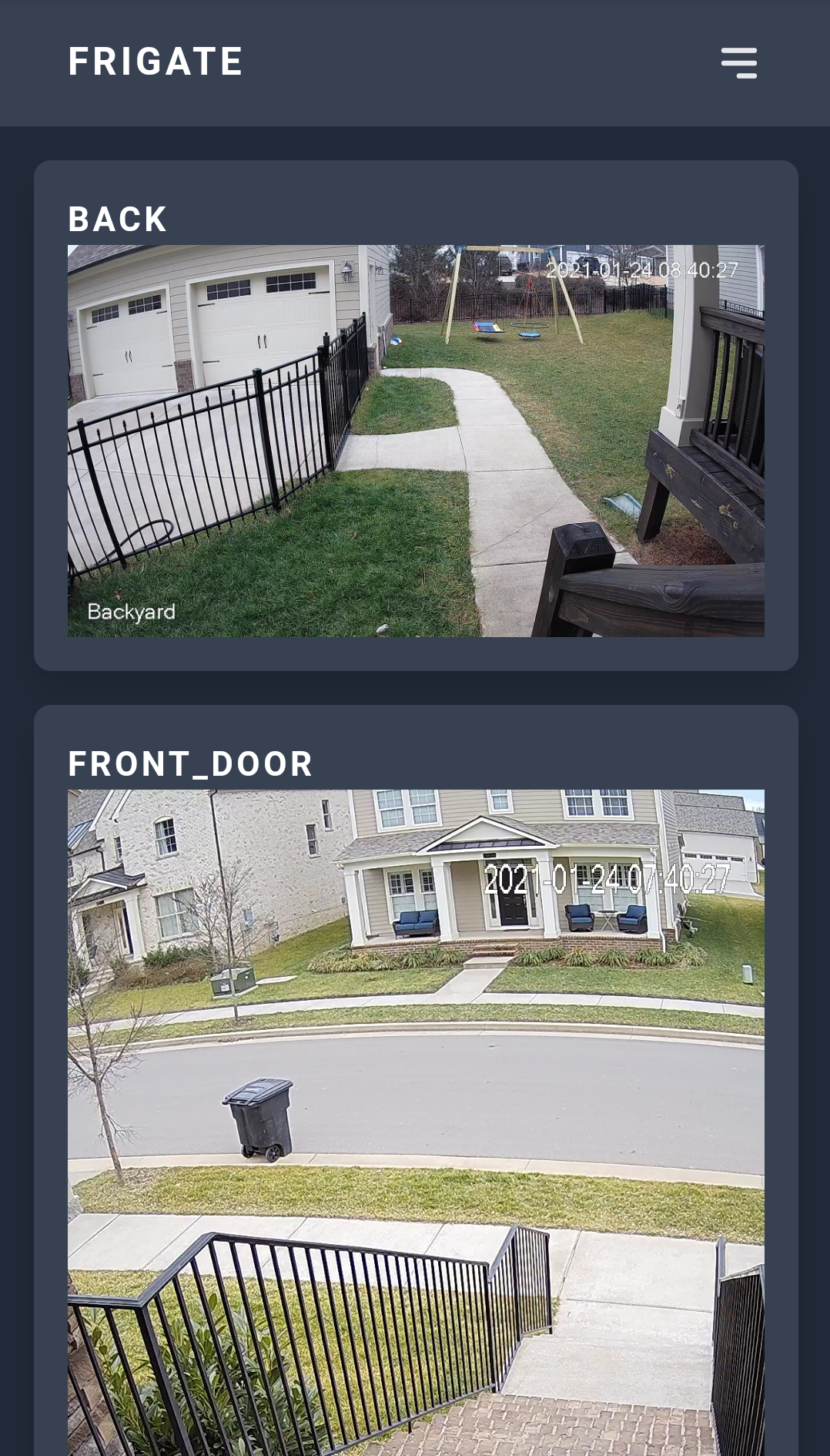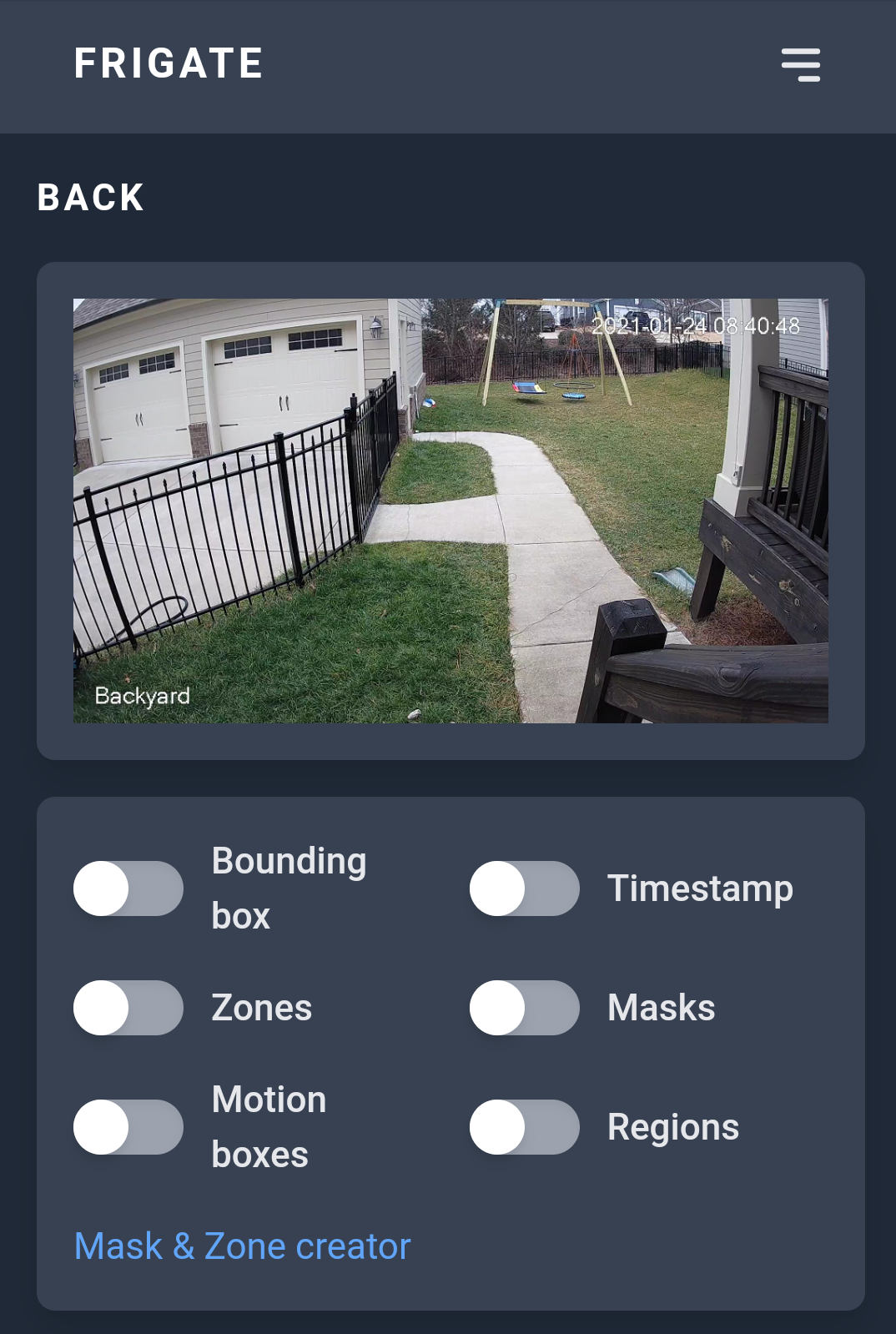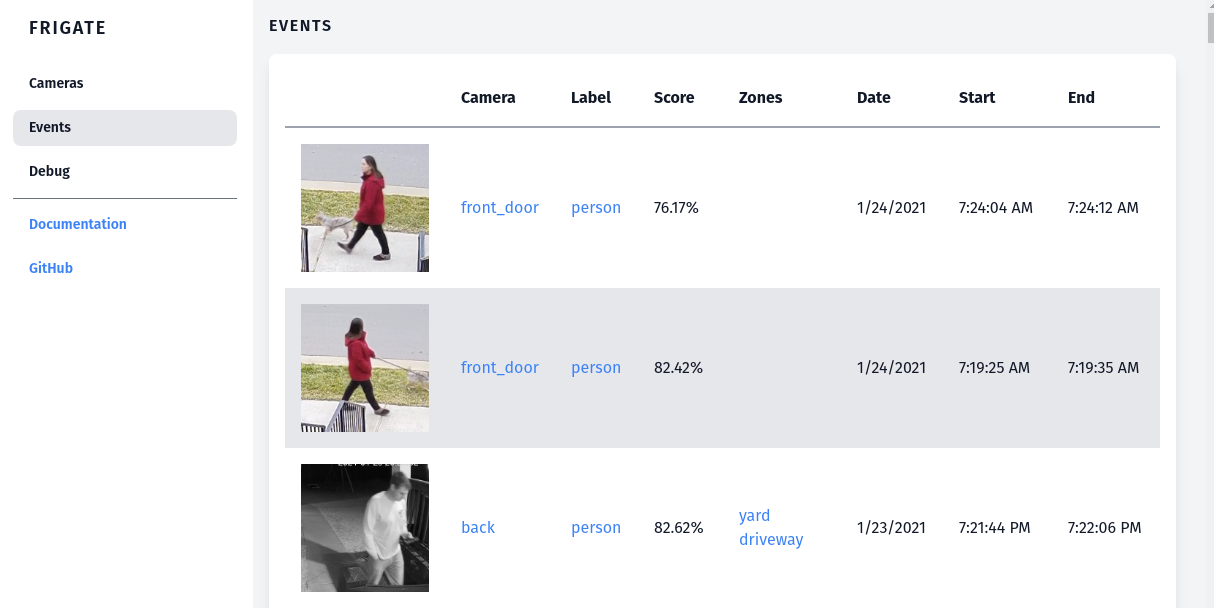mirror of
https://github.com/blakeblackshear/frigate.git
synced 2025-09-14 17:52:10 +02:00
NVR with realtime local object detection for IP cameras
aicameragoogle-coralhome-assistanthome-automationhomeautomationmqttnvrobject-detectionrealtimertsptensorflow
| .devcontainer | ||
| .github | ||
| docker | ||
| docs | ||
| frigate | ||
| migrations | ||
| web | ||
| .dockerignore | ||
| .gitignore | ||
| .pylintrc | ||
| benchmark.py | ||
| docker-compose.yml | ||
| labelmap.txt | ||
| LICENSE | ||
| Makefile | ||
| README.md | ||
Frigate - NVR With Realtime Object Detection for IP Cameras
A complete and local NVR designed for Home Assistant with AI object detection. Uses OpenCV and Tensorflow to perform realtime object detection locally for IP cameras.
Use of a Google Coral Accelerator is optional, but highly recommended. The Coral will outperform even the best CPUs and can process 100+ FPS with very little overhead.
- Tight integration with Home Assistant via a custom component
- Designed to minimize resource use and maximize performance by only looking for objects when and where it is necessary
- Leverages multiprocessing heavily with an emphasis on realtime over processing every frame
- Uses a very low overhead motion detection to determine where to run object detection
- Object detection with TensorFlow runs in separate processes for maximum FPS
- Communicates over MQTT for easy integration into other systems
- Records video with retention settings based on detected objects
- 24/7 recording
- Re-streaming via RTMP to reduce the number of connections to your camera
Documentation
View the documentation at https://blakeblackshear.github.io/frigate
Donations
If you would like to make a donation to support development, please use Github Sponsors.
Screenshots
Integration into Home Assistant
Also comes with a builtin UI:





